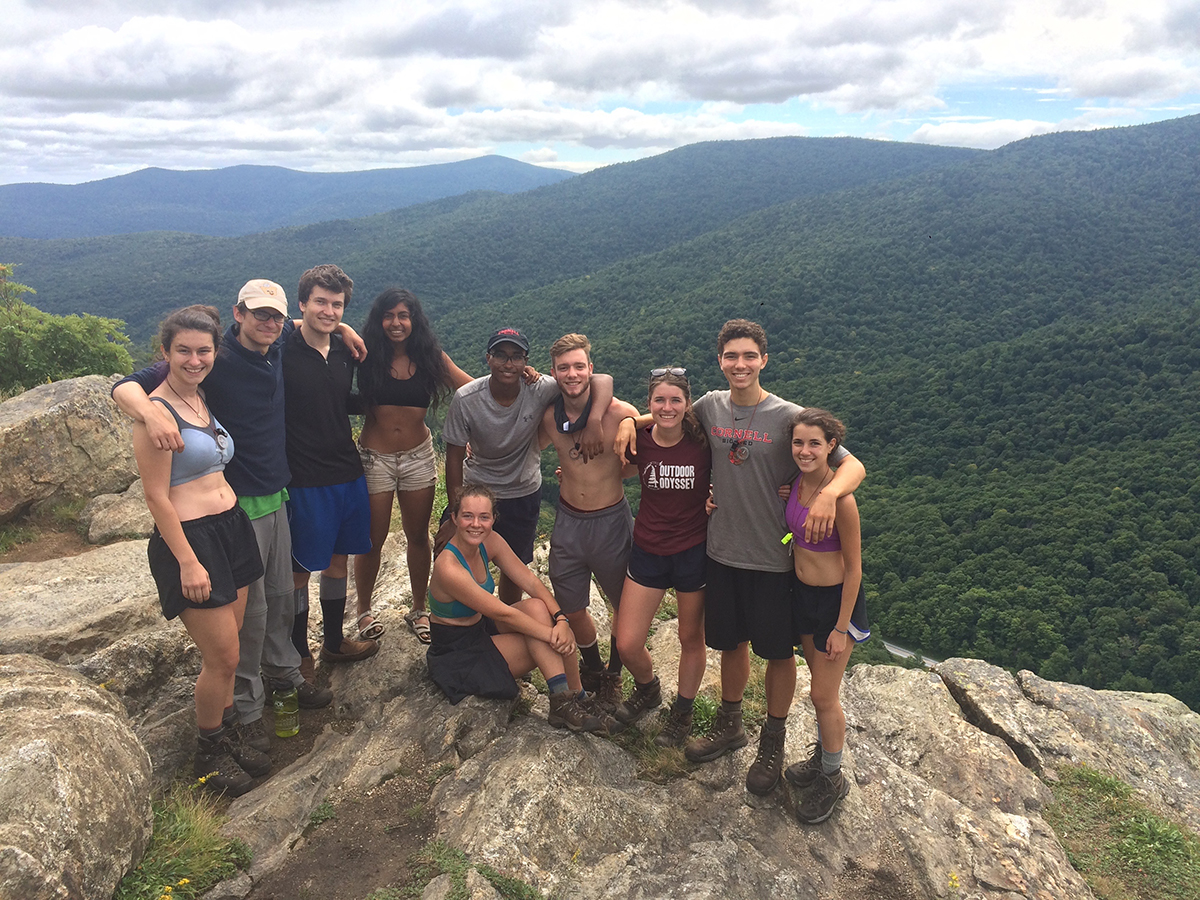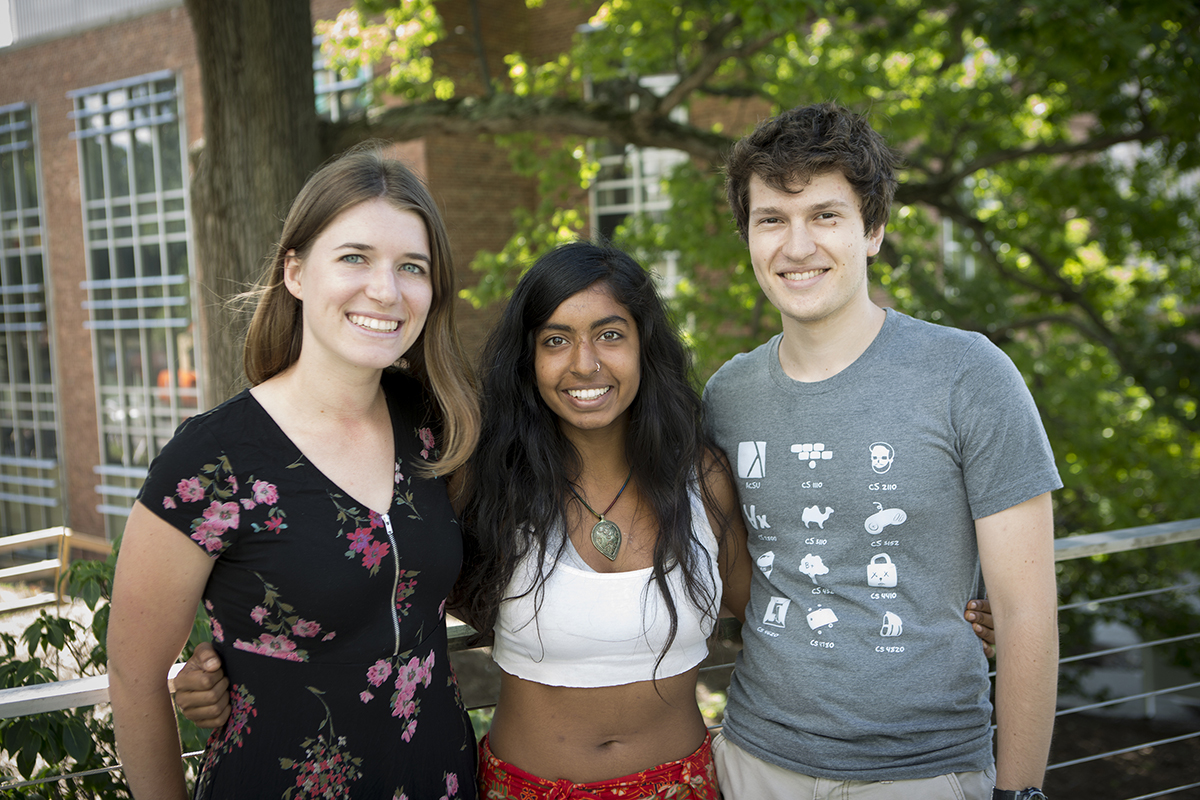Outdoor Odyssey group rescues injured hiker in Vermont
By Daniel Aloi

Veteran hiker William “Corky” Lowe says he owes his life to a group of Cornell Outdoor Education (COE) Outdoor Odyssey students who found him injured and aided in his rescue and emergency evacuation over steep, slippery terrain in Vermont’s Green Mountains last week.
At about 9 a.m. Aug. 17, Lowe was hiking with two friends on the Green Mountain National Forest’s Long Trail near Ripton, Vermont, when he slipped and fell, dislocating and breaking his ankle in three places. His friends fashioned a splint, and one of them, Herb Armstrong, had gone to call 911 and ran into the Cornell group on the trail, telling them what had happened.
When they arrived 30 minutes later, they found Lowe on the ground in the rain with his friend, Bill Buccine.
Guides Tanvi Naidu ’17, Eliza Weaver ’17 and Paul DeVito ’18 all had Wilderness First Response and emergency medicine training through COE. Naidu talked to Lowe and took notes about his condition for when rescuers arrived.
“He was shivering and in shock when we found him,” Naidu said.
The students put up a tarp, covered him with sleeping bags and boiled water for drinking and a hot water bottle to treat his hypothermia. Weaver also began calling for help and after several dropped calls got through just before noon.
A fire department rescue team would not arrive until after 2 p.m. “Our goal was to keep him warm and dry,” DeVito said. “You don’t practice sitting and waiting for help to come.”
“I have been long-distance hiking for over 40 years, and I am here to tell you that the COE team saved my life on that trail and displayed determination [to] succeed that was humbling,” said Lowe, 69, an emergency management coordinator and retired U.S. Army colonel from New Jersey.

“The rescue leader said that he was impressed by the prep work that was done prior to their arrival,” Buccine said.
The three Cornell guides, six incoming freshmen and a transfer student had spent the previous night with the three hikers at a trail shelter, singing and sharing hiking stories.
Carrying the 240-pound Lowe in a Stokes basket, the students left their packs behind and helped other volunteers in the arduous four-mile descent down the mountain.
“The trail was very steep and wet, with lots of roots,” Weaver said. “We couldn’t really walk with the litter. Once it got dark, we had a whole other level of difficulty to deal with.”
The descent took about eight hours to a pickup point where emergency vehicles were waiting as well as a bus for the students, while Lowe was rushed to the Vermont University Medical Center in Burlington.
“Much of the way, the basket had to be handed from person to person. When we could walk, the footing was slippery and rocky,” Buccine said.
“At the end, everyone was tired,” Weaver said. “It was incredibly physically and emotionally draining for everyone.”
Lowe was in a great deal of pain but “he was incredibly pleasant and in relatively high spirits, given the circumstances,” Naidu said. “We all want to be hiking when we’re that age.”
“We knew from our training about how long it takes for a rescue like this, but you don’t know what to expect when you’re in the situation,” Weaver said. “A number of people have said things to us, how great it is that we stopped and helped, but it wasn’t even a decision.”
DeVito added: “That’s what the training is for.”
The experience, Naidu said, was “a testament to the power of the wilderness in cementing a group – that after seven days in the woods these students were able to do that.”
Lowe intends to visit the campus to recognize the students for their assistance.
“After his surgery and when he’s recuperated, we’ve invited him to come up to Cornell and meet with the group,” said Marc Magnus-Sharpe, the Lindseth Director of Cornell Outdoor Education. “He’s very motivated to meet them and commend them.”
Media Contact
Get Cornell news delivered right to your inbox.
Subscribe